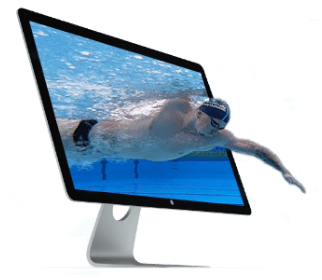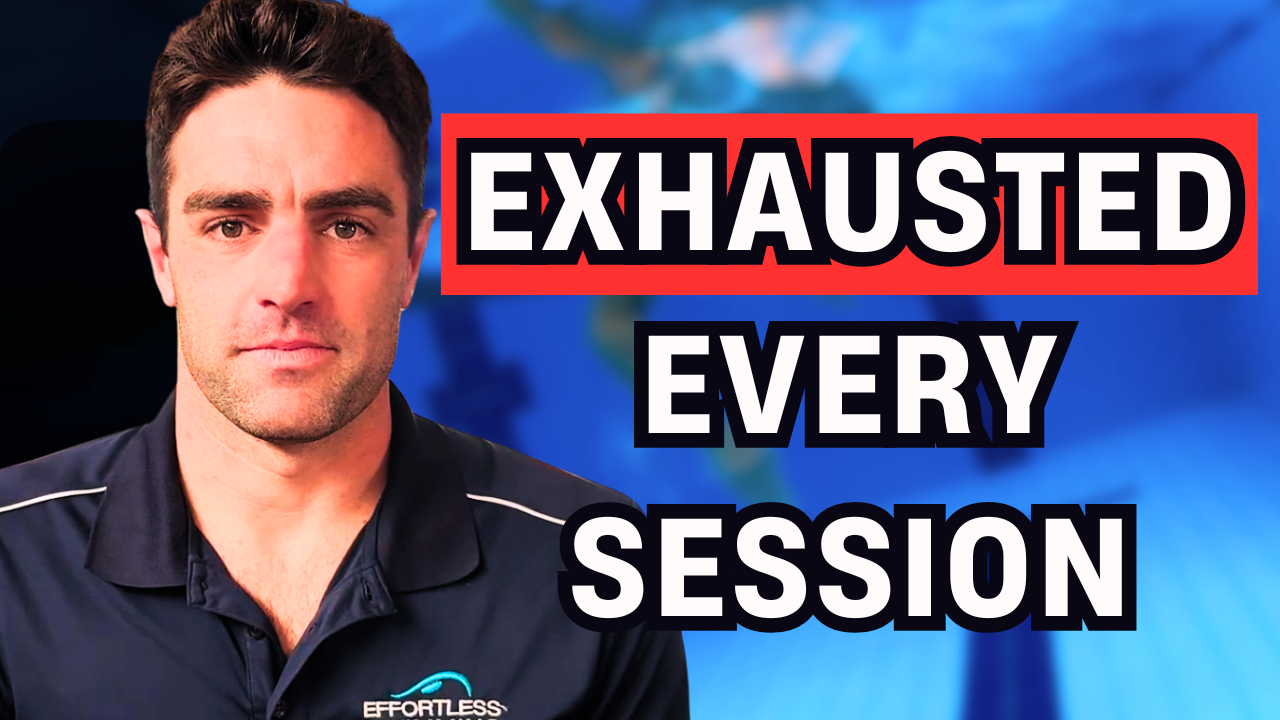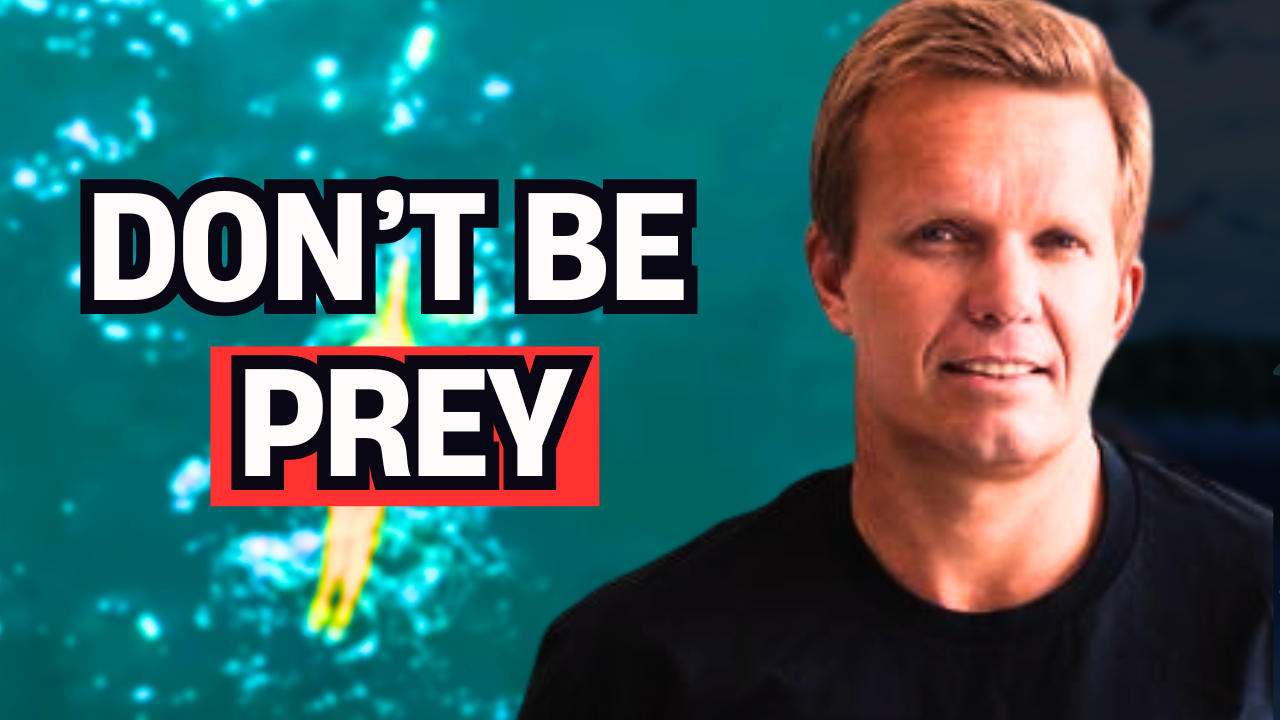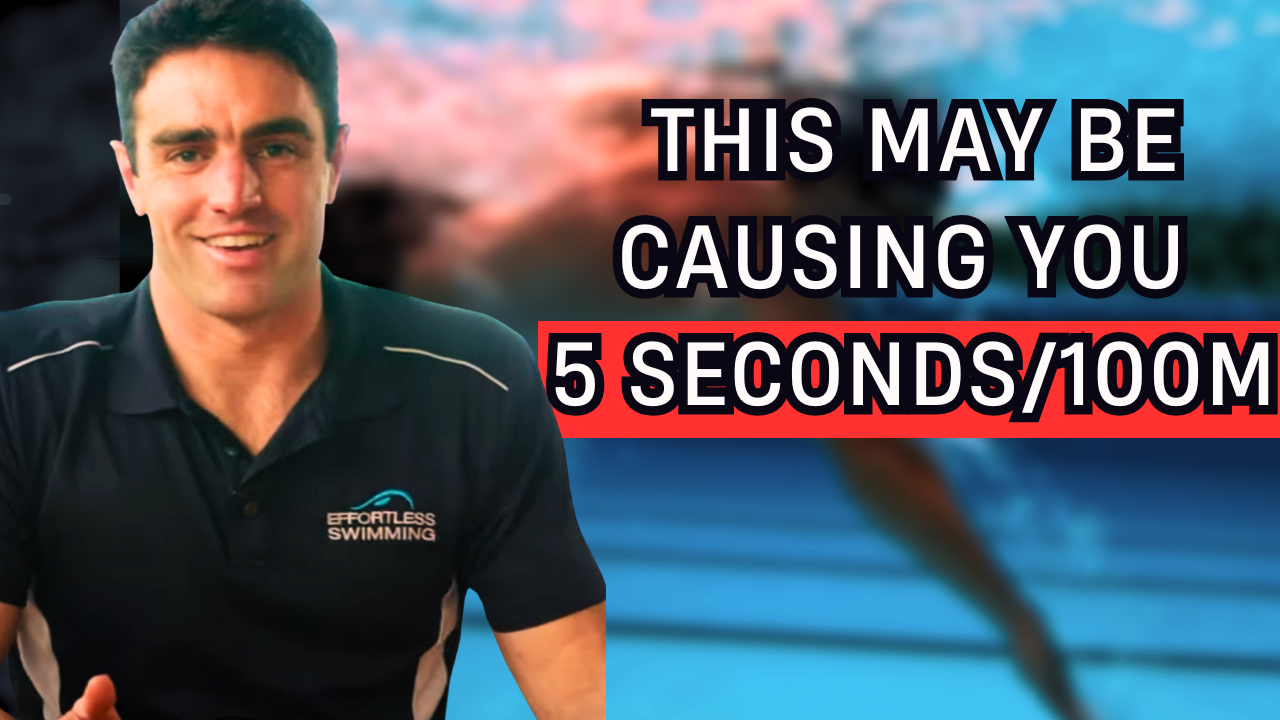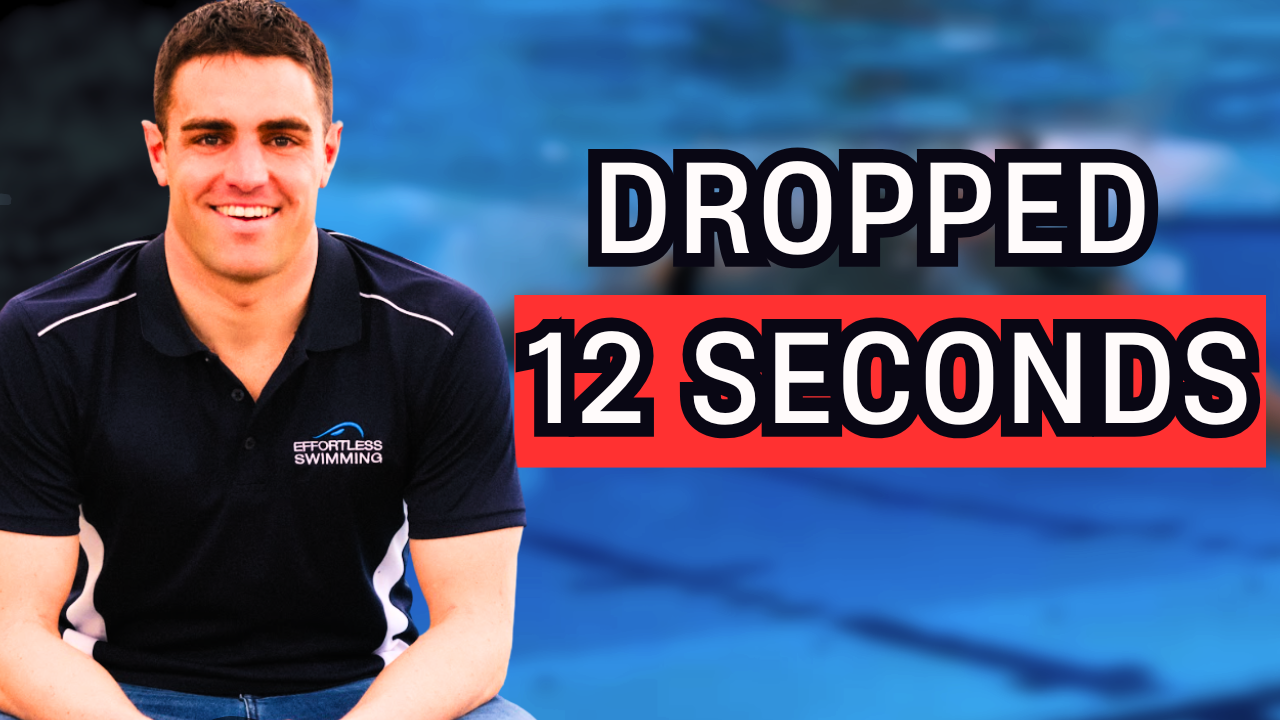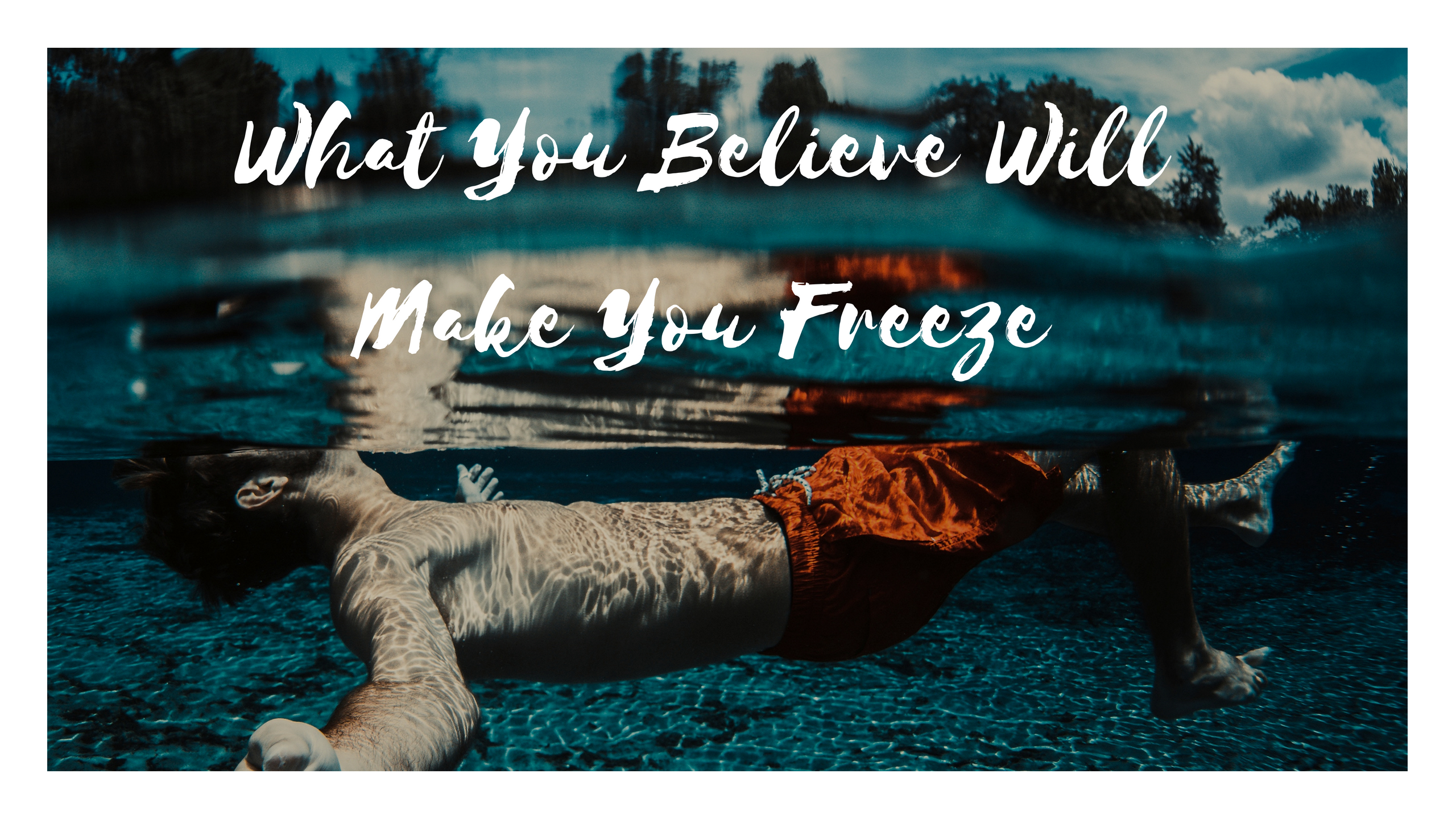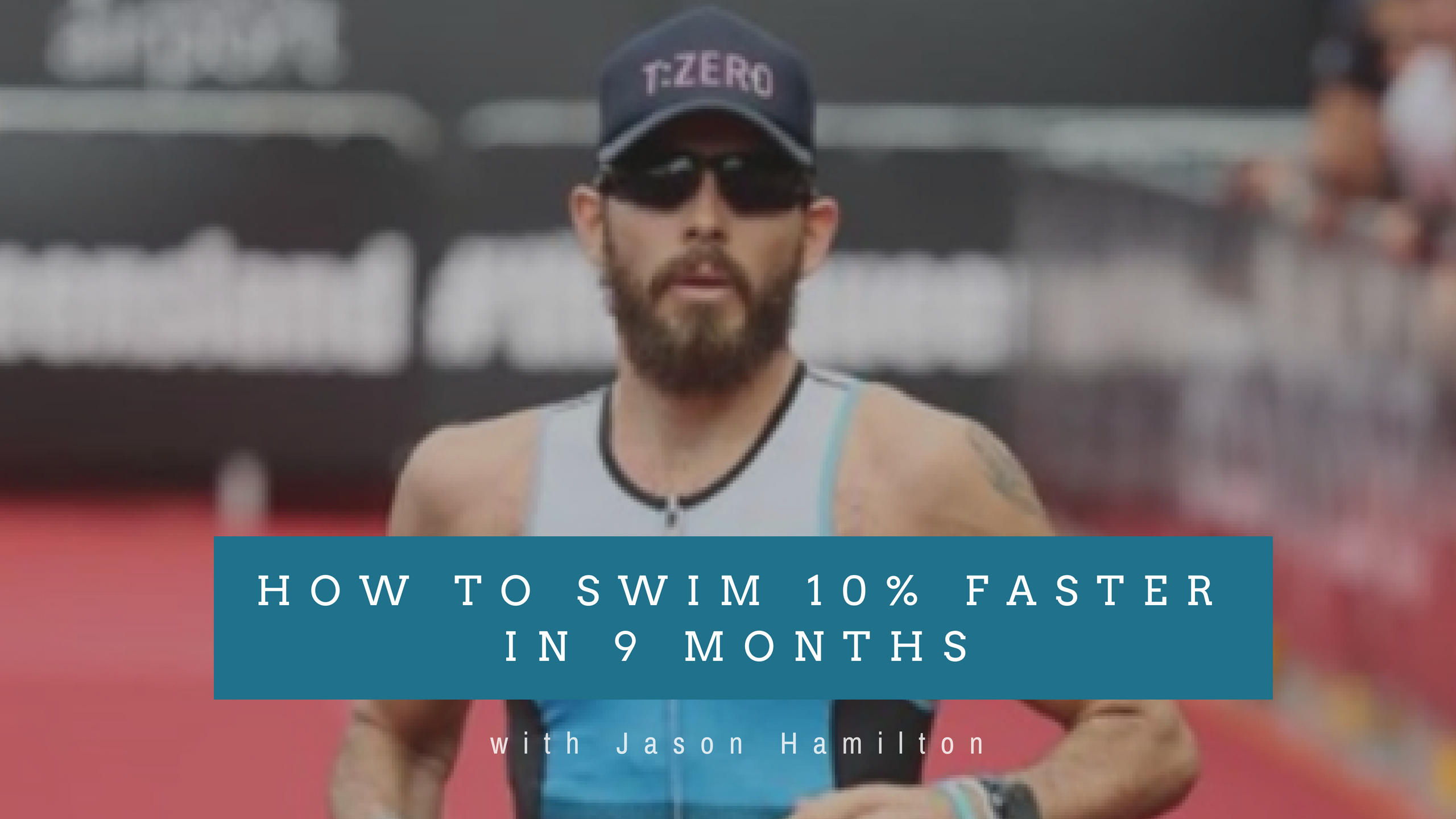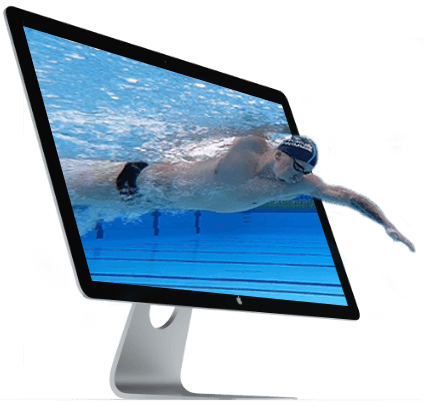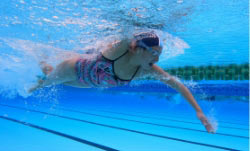The Fearless Mind with Professional Triathlete Angela Naeth
Welcome to this week’s podcast, where I sit down with professional triathlete Angela Naeth to talk about thinking and reflecting on your personal and sporting life.
Angela hails from Canada and is a multiple Ironman Champion who holds a Masters degree in Physical Therapy and a Bachelor’s in Health Sciences, initially becoming a pediatric and orthopaedic physiotherapist before pursuing full-time racing.
Join us as we discuss everything from overcoming illness to motivational reads and the importance of setting goals and constant reflection.
01:40 – Updates.
04:40 – Lyme Disease and overcoming illness.
07:50 – The importance of psychology in sports.
11:30 – The Fearless Mind.
15:38 – The journaling process.
25:00 – Red Bull team camps.
28:57 – Coaching.
32:10 – I Race Like a Girl.
35:50 – Life outside competition.
41:30 – Reflecting on the past.
To find out more about Angela please visit:
http://www.angelanaeth.com/
Transcript:
Brenton Ford: Welcome to Episode Number 118 of the Effortless Swim podcast. I was fortunate enough to be joined by professional triathlete Angela Naeth on today’s episode. And if you are someone who enjoys thinking and reflecting on your sport, your life, things around that, I think you’ll really enjoy today’s episode. Angela is the very genuine person and she’s someone who’s done a lot of thinking and reflecting of her own over the past eight years that she’s been racing triathlon. And we talk about some ways that she’s overcome anxiety around racing and performing, something she dealt a lot with in the early days of her triathlon career. She also mentions a book that she’s read five or six times that she’s been able to use and get a lot from when it comes to becoming a fearless and a very competitive racer.
We also talk about how she uses journaling at the start of the day and at the end of the day to help her set her course, set her targets, and also reflect on things that she’s done well and what she could do better the next day and I share some ways that I’ve done something very similar with journaling as well. And she also talks about the I Race Like a Girl community that she’s built over the past couple of years that has given her a lot of meeting and purpose in what she’s doing outside of her own racing. I found I had a lot in common with Angela and really enjoyed the chat with her. She gives a lot of very actionable things that you can do in your own swimming or triathlon to maybe set your course a little differently, reflect on what or where you’re going and she also shares, is very open about a lot of the things that she’s been through over the past couple of years.
So before we get into today’s episode, just want to update you on a couple of things. The Hell Week camp in Thailand this October is fully booked. There’s a waiting list now on the website if you’d like to join the waiting list. There’s already quite a few people on it so it is unlikely that you will get a spot if you do join that waiting list but you can always put your name down for next year and we can let you know when we are opening spots for next year’s camp. Our Hawaii camp in March is currently half full so there’s only about six spots left for that and that’s happening in March in Oahu next year. So you can go to the EffortlessSwimming.com website to find out more about that, and finally, I mentioned a few weeks ago about the paddle that I’m in the process of developing alongside another person, another coach. It’s actually been in development for two years. I’ve sort of just come on board to help with the finishing touches on it. Where we’re at currently with that is we’re putting or getting four to five prototypes made so the design is set. We now just coming out with the right mix of materials to make sure it’s got the right buoyancy and feel and shape to it.
So I’ll keep you updated as we go, but that’s gonna be launching on Kickstarter. It’s probably going to be at the end of July, possibly August now but this paddle I’m really excited about. Some of the mechanics around how it’s designed, really to help with the early part of the catch which is one of the key things that you can do as a swimmer or that you can focus on as a swimmer. And this paddle, the way that it’s been designed and shaped, it will allow you to, kind of teach you and train you to set up the catch in the right way. So as details come out I’ll keep you updated and if you follow us on Instagram or Facebook, I’ll also be putting up some shots and some videos as we start to get th em. So if you’re not following us there, you can just follow us @effortlessswimming on Instagram or Facebook. So let’s get into the podcast. Here’s Angela Naeth and really enjoyed this conversation, let’s get into it.
Speaker 2: Welcome to the Effortless Swimming podcast, the show that helps swimmers and triathletes love the water, become a better swim, and live a better life. Here’s your host, Brenton Ford.
Brenton Ford: So Angela, thanks for joining me on the podcast. I’ve been following you on Instagram for a little while and then I thought it’d be great to get you on a podcast. And I looked back at our emails and we had a brief email exchange about six or seven years ago.
Angela Naeth: Oh wow.
Brenton Ford: Just briefly talking about swimming. But yeah it’s just funny looking back at that. But I mean you’re being racing for about eight years now.
Angela Naeth: Yes.
Brenton Ford: As a pro I think, is that right?
Angela Naeth: Yep.
Brenton Ford: With a lot of half Ironman and full distance Ironman events under your belt. So what are you working towards at the moment? For those that are listening they may not know you’ve been through a pretty rough last couple of months with Lyme disease.
Angela Naeth: Yeah, so I was diagnosed with Lyme’s disease in May and since then I’ve been on antibiotics and treatments and protocols. My overall goal is obviously to get healthy and get back to some racing. I just did the Boulder Ironman which my running was by far nowhere near where it should be but it’s a local race and I wanted to see where I was at. So for now we’re just taking it week by week every day and seeing how the body responds. With this infection, things go up and down quite regularly so we just honestly don’t have anything on the schedule. I wake up, I talk to my coach who is also my boyfriend and we connect and say, okay how about we try this? And we kinda just take it every day.
I’m not really sure what tomorrow brings but I’m obviously hoping for the best and every week I can see improvements. It’s just a matter of a stair step. It’s not a lineal improvement, it’s basically, I get to a point, I kind of plateau, I need to go down a little bit and then go back up. So it’s been a whirlwind for sure.
Brenton Ford: Yeah, I bet. What have you put in place, or how have you managed to cope with it in the last couple of months because I know when I’m injured or sick it’s, as an athlete it’s so frustrating to have to put up with that and not be able to train or compete at your full capacity. Are there anything that you have done that’s helped you manage that?
Angela Naeth: I kind of think of it as I just put it in perspective. About three or four months ago I was in a very very bad spot. I couldn’t walk down stairs properly. I didn’t know what was going on, and so to now have a diagnosis and understand what’s happening I’m pretty grateful. I have days where I’m pretty sick and I don’t feel well and I question if I’m ever gonna get better but overall I just take it each day and I’m very very grateful for the treatment that I’m on. So I just try to keep a positive mindset and focus on what I can do all the time and I take the extra rest. There’s not much more than I can do and so I just have accepted it. It’s a choice of positive mindset and positive attitude. Just trying to keep moving forward.
Brenton Ford: Yeah. And you’ve done quite a bit of work with a psychologist over the last eight years.
Angela Naeth: Yes.
Brenton Ford: And I know you talk a lot about finding the stillness in racing amongst other things. What role does your psychologist play at the moment? How often do you talk? What sort of things do you talk about? And how has it helped you out?
Angela Naeth: Yeah, so when I started with Red Bull about four years ago I read this book called The Fearless Mind by Craig Manning and it’s an amazing book and it’s all about sports psychology and also life psychology. It’s just basically creating a mindset of not being afraid and really taking control. So when I worked with Red Bull, I found out that he worked with some of the athletes and so I quickly connected with my athlete manager at Red Bull and said is there any way I can connect with Craig because I am in love with his book and I’ve read it five times and I would just love to connect with him.
And she was like, ‘Oh my gosh, you can talk to him every week if you want.’ I was like, really? And so I was just overwhelmed and we got connected and we’ve been chatting almost every week for the last three years I would say. You know a few weeks would go by without us connecting but we definitely … Like if I were to text him right now we would set up a time in the next few days and we usually talk once or twice a week if I need to but typically it’s just once a week, once every two weeks.
And we started just chatting about the races and how to just change my mindset to be focused on very specific things in the race and having cue words and every day I would write in a journal and just have very quick three cue words. Like for example, one of them would be a can-do mindset. So that’s simple, it’s a very positive mindset and you just have that in your mind. But then over the years it’s kind of conversed to really working more being externally aware of your environment, understanding that it’s not just you racing, it’s the environment that you’re in that you’re racing. And just being in control of yourself within that.
We talk a lot about anything that goes on in my life I talk to him about. I’ve been through a divorce, I’ve had a lot of DNFs, I’ve had a lot of injuries, I’ve had this Lyme disease. So he just really fine tunes my head.
Brenton Ford: Yeah. And I think, especially at that level of racing, as a professional triathlete in the very pointy end of the field, often it can just come down to your mindset on the day and if you can push through the challenges that you get. It’s really about the one percent-ers at the level you’re racing at. Even from, I guess you’re more age group athletes, they can have some big improvements or big changes in the results that they get based on what they’re thinking. Especially if you’re doing this full time the mind games, it’s very easy to let them get the better of you. And with this book, what’s The Fearless Mind? What were the main takeaways that you got from the book? What caused you to read it five times?
Angela Naeth: Well it’s a very simple read. It’s a small book and it’s just, the way that he talks in the book, or he writes in the book is just very simple cues and understanding. He basically, in the book, it makes you just feel confident. What I got out of it was really how simple things could be rather than always thinking about the what ifs and stuff. It’s really just embracing the now, the moment, and being in the moment and how to do that.
a lot of the times … He used to be a tennis player so he related it to tennis a lot and so if he was in a match and his mind was unraveling he would focus on his backhand and it would be just a very specific part of his backhand, like the flick of his wrist. And so every time he would go into a match it would be, for example, and I don’t know anything about tennis but say flick your wrist to the right and so he would just say in his head, flick right, flick right, flick right. So it’s very just simple things at first that you need to focus on so you don’t have all this external stimulus and talk in your head that could be negative. And then from there, the book goes into the negative self-talk and the things that we say to ourselves. And the key out of all of it is that internal chatter you have and what you say to yourself.
And so a lot of the times we keep a journal and we have to choose our words and so he’s helped me create little cues and things to look at every day where I can really just choose those words and have them as cues so that if my mind is unraveling to certain aspects, I can go back to those all the time. An example is in a race, just the words I am strong. It just helped me focus on the power output on the bike. It’s very simple things and he just made it very profound within the simplicity of it.
Brenton Ford: Yeah and that’s what I think is really the key to doing things well is to find the simplest form of it and that comes down to your mindset. We run a lot of swimming clinics here in Australia and we’ve been doing it for the last four or five years. At the start, we did about 24 different drills in the clinic and it was just overload and I think really trying to find the simplest way to do it is the best way. So now we do four or five drills. It’s simplified down into two or three key points but the results that we get now compared to five years ago is so much better just because it’s really boiled down to the simplest form of things.
It’s great that he’s able to do that. The funny thing about flow, and you’re with the Red Bull team and they’re really all about getting into the flow, their athletes. And the thing about that is as soon as you think about getting into flow you have lost it. It’s a very challenging thing to do but I was chatting with a guy, Grant Giles, he’s a triathlon coach here in Australia and coaches a lot of the pro guys over here and he’s very big into mindset and psychology and he said that with one of his athletes who was actually a surf skate peddler, in order to get into the flow all he had him do was to think about the feel about the pedal in the water with every stroke that he was taking. And that’s it. You don’t want to think about anything else, it’s just feeling the pedal in the water.
For swimming, for me, it’s just the first part of the catch. Just getting the feel for that entry out in front. The early part of the catch and if I just focus on that the rest of it just tends to come easily and I can just get in the zone really really well. With your writing the journal, can you add a bit more data to that? What’s the process that you go through on a daily basis with writing in a journal, because I find that really helpful for reflection, for setting up the day. Just sitting down and writing things by hand.
Angela Naeth: Yeah so kind of how he lays it out is you want to have an objective and it doesn’t have to be for the objective for this specific day but an objective within the week. And something that’s just a little bit beyond your reach. So some type of goal and it doesn’t have to be very specific like I want to swim 110 or whatever. It could be very very open to basically, you want to be able to lay down a foundation of four weeks or training for example. So that would be your objective for the next month. And then what you want to do is look at a plan. So the planning part is where we find those specific skills or action that you want to take to achieve. And now it’s not a task, it’s not a to-do list or anything. These are the things where he’s helped me. For example, this morning I wrote in my plan to live in the present, to focus externally and so what that means is more be aware of your external environment rather than just always internal thinking all the time. So being able to not just react but be able to act upon what’s happening as it’s coming so it’s not reactive, oh my gosh I have to do this, I have to do that but it’s just focusing on understanding what’s going on around you. And so that’s a lot of words so to create a very simple objective and a plan, it’s to focus externally. And then the other one for me, for this morning was to stay calm. And so they’re very very simple words so live in the present, focus externally and stay calm.
So throughout the day, these are the things that I say to myself. I think about, and it just kind of puts me in this type of mindset. My objective for today was to just have a solid training day and being able to recover. So those were my objectives towards that. It’s not looking at numbers and the overall goal-oriented approach that a lot of people use. And from there in the evening, what you do is you look at what you did well for that day. So, for example, I can go over today. So the things that I did well is I ate well. I had really good nutrition so I was very in the present for that. I took the day in stride. I was able to take a nap. I really focused on how I was feeling, and I also completed all my training.
So I correlate it with my plan and look at my strengths. And then the last part is the key part, is one thing that I can improve. So rather than focusing on all the negative mindset, it’s more about three things you did well in that day and one thing you can improve on. So one thing that I wrote for today was I can definitely eat a lot more vegetables. So it’s just very small things but then I take that and I take that over to the next day. So looking at what I looked at today, it looks like nutrition is a thing I’ve been focusing on and so that’s something I can look at as an objective for the next day. And then part of the whole thing is to actually evaluate yourself. So you want to look at your motivation. So what was my motivation to have a solid training day? Was it high? Was it low? And you scale yourself from one to five.
And then the next part is if I have any anxiety toward it, and what’s my concentration. What’s my confidence level? And what type of decision making have I done? If those are all technically quite high, then you found a really good objective. You found a good plan and you were able to improve and grow as a person. But if you find that your motivation is lacking or your concentration was low, you had really high anxiety, you may want to re-look at your objectives. So it’s just a constant process of continually evaluating yourself and evaluating what you’re saying in your head.
A lot of the stuff that we talk about is just the communication that you say to yourself is so important. The narrative that you say, whether it be good, bad. Some people don’t even know that they’re saying just crap to themselves. This type of psychology and the process that we went through has really taught me some of the fears and the negative mindset and the what-if’s, it’s all just words in my head that I am ultimately in control of. So he’s really taught me to be able to create a day, a narrative, a way of life to really embrace everything. So it’s been a really good learning experience for the last few years.
Brenton Ford: Yeah, that’s fantastic. It reminds me a bit of, I’ve got this, it’s called the Five Minute Journal. I don’t know if you’ve heard of it-
Angela Naeth: Oh yes, I used to have one.
Brenton Ford: Yeah, yeah. It follows a similar sort of process. I don’t get to do it every day but when I do usually I’m pretty good at sticking to that plan and the things that it asks in the daily journal, so in the morning you write three things that you’re grateful for, what would make today great, daily affirmation. So it’s kind of like that mind-
Angela Naeth: The plan?
Brenton Ford: Yeah, the plan, and those cues. And then at the end of the day, you look at three amazing things that happened today and how could I have made today better. It’s only one page for each day. It takes you five, maybe 10 minutes in total. But it’s a good way to set your direction for the day and to also evaluate it. It’s like last week or two weeks ago I was in Queensland and I was running some clinics up there.
I was up in Camden and the clinics went really really well and the results that we got from people were people just made some good changes. I was just in a really good head space that day so I looked at how did I start the day and what caused that? I just got up, I did 15 minutes of yoga, I did about two to three minutes of meditation, just setting my mind. And then I had a healthy breakfast and then throughout the clinics, I didn’t eat any crappy food. That’s all it was, it was so simple. But just looking back at that I go okay, if I want to continue that habit and continue to have clinics run really well, that’s what I’ve gotta do. I’ve gotta follow something along those lines.
When I was growing up we’d have a log book for our workout so you’d write down your workouts and basically go through similar things like how’s my sleep, how’s my eating? And I did that for about six or seven years just tracking almost every single day with how we felt, what the workouts was, what our times were. It’s just a really good way to just get your step outside of that 15-minute loop that your mind often goes through with the self-talk and to just step outside of that.
Angela Naeth: Hmm. Yeah, no I actually really like it. I’ve learned over … Like pretty much this same thing, what cue words really help me every day and that really, I’m able to adapt to. So a lot of the time in my daily writing I almost do the same things over and over again for about a month until it just becomes ingrained. And then once I get it ingrained, then I feel like I’ve moved to the next step and I can look and focus on something else now because everything else has just been able to be solidified.
Brenton Ford: Yeah, it makes sense. It’s like making changes to your technique. We say you’ve gotta give it at least six to eight weeks to replace old habits or to change the habits and then they become solidified. You can do them under pressure, when you’re racing you can hold that form without having to think about it but the same thing goes for anything that you work up with your mindset as well. It does take time to become a part of you. And with that, you’ve been part of the Red Bull team. It sounds like they do some pretty cool camps and events. What sort of stuff have you enjoyed the most working with those guys?
Angela Naeth: Yeah they’re pretty phenomenal. I’m very very grateful for them as a sponsor. They have opened up my athletic career, me as a person. I’ve been to a few camps and one of the camps that really stuck out to me, we did a fear camp basically. And throughout the … We were out for five days and we didn’t really know what was coming on or anything but there was a good group of about 15 athletes. The first day we had to go onstage and basically cry in front of everybody and then be happy. I’m not someone to go on stage, I don’t do that stuff so I found that extremely hard and by the end of that day I was able to on-call be able to cry and on call be able to be in ecstatic joy or be really angry. It just gave me this confidence and then some other time …
The very next day what they did was they brought us to this area in the forest. It was up in Montana and we were just talking on these logs and stuff and then all of the sudden someone says, ‘Bear!’ And we look around there’s this grizzly bear coming toward us. They had it all set up because it was just more about trying to really embrace fear and how to control it. And so that was really … I mean they just shocked us every single time.
Brenton Ford: Did you come to expect it at the end of the camp or was it still?
Angela Naeth: No, every day, we kind of knew what we were getting ourselves into but it wasn’t just oh my gosh, we’re gonna be afraid. It was more of an empowerment in terms of everything that they brought us, like what they brought to us. It was funny, it was during that camp that I decided that I wanted to get a complete divorce so it was very confident because at the time we were separated and we weren’t knowing what we were gonna do and it just gave me an understanding of who I was as a person and what I stood for. And so I’m forever grateful for that. And that’s just one example.
Another camp we did was we went from high altitude up to 10,000 feet and then we went down to Death Valley and we did a bunch of testing. Because they have a lot of scientists on board in the athletic side and they really want to focus on improving their athletes and so I was a guinea pig for that camp and they just really help you overall. Again, they hooked it up with Craig. They don’t see you just as an athlete, they see you as a whole person and they really want you to grow and be able to share your sport with others. They have opened up so many opportunities. I was able to do a triathlon camp for collegiate kids in January this past winter and I had such a blast. I was able to teach them what I know and we actually did a presentation with Craig, my coach. We were able to do testing on these kids and that was the second year I’ve done that. They just are always open to ideas and projects so I’m hoping to continue those and see where it will lead.
Brenton Ford: That’s really cool. What do you enjoy about coaching? What do you get out of it? What are your favorite things about it? Because it’s very different to racing. You’ve gotta be, it’s a different focus, isn’t it? What do you like most about it?
Angela Naeth: I like the communication and the relationships that you develop. As an athlete myself and having a coach and have had a variety of coaches. It helps me understand myself because we’re all kind of the same. We all have the same fears. We all have the same doubts. Just being able to communicate to another person about a fear or open water swimming or trying to find that zone in a race. It kind of just helps me as a person as well because I’m able to understand it and communicate it. I really love seeing when people succeed because it’s just such a fun experience. I am so inspired when I am able to help someone achieve their goals.
When you see people cross the finish line or they text me and said, ‘Oh my gosh I did this today.’ You know I just love being part of that process and then at the same time things can go bad as well. It’s just, it’s, I love the connection. It’s something that’s part of this sport that I … It’s a very lonely sport in terms of when you’re out racing. It’s a very individualized sport and being able to coach and connect with other people and be a part of their process has really enriched my life basically. I love it.
Brenton Ford: Yeah that’s really cool. I found a similar thing going from just competing to coaching. For me, I don’t know about you, but I’m more on the introverted side. I’m typically not that much of an extrovert in terms of socializing and that sort of thing but with coaching, you’re in front of a group of people or one to one, you’ve almost got to turn that around when it comes to coaching and not be afraid to be outspoken and speak to a group and just have that connection. And for me it’s really helped me become a bit more balanced in that side of things from introvert to extrovert and having that community.
You’ve got the I Race Like a Girl community which you’ve started in the last two years or so and building that group. I’ve found, I run a Hell Week camp in Thailand at tenure period over there for the last four or five years and I’ve just started running camps. And just having a group … We get people who come every year and just having that relationship with people. That’s a really big kick that I wasn’t expecting to get from the camps but once you develop those relationships you see people get results. That’s what makes it all worth it is the relationships in the end. Tell me a bit more about the I Race Like a Girl community and how that started.
Angela Naeth: Yeah it actually started with that idea in mind. I’m very similar to you. I’m not someone to go out and party. I love talking and connecting with people but I’m not the extrovert type. I love being around people but I definitely like my alone time. So when I was going through divorce actually a couple of years ago, and I was trying to reflect back on why I do this sport, what I loved about this sport and a lot of it was the home stays I had. The connection. I’m just a very connection person and I wanted to create a community. A community that I could help others. And just from the example of coaching, I was really inspired by that and it was like how can I create something that I can help more people, have conversations with people. And we’re so connected online now that I wanted to create a community where they could have home stays where someone on the team from Florida could go up to Washington or to Hawaii and have another team member. Or if they wanted to go to a race together, they could go together. So it kind of started from that and I just started creating a website, putting things together and it just kind of flourished. I coach a lot of the members on the team. I wouldn’t say a lot, but a few. And then also outside.
And then we also we’ve done team events. We have a really good group in the Boston area. I’m in Colorado right now so we just had a meet up here. And so we’re having these small little pockets being created and now you see a lot of these athletes connecting with each other for bike rides. We had someone go race in Hawaii and they had to stop in Vegas and so they had a homestay there. We had people … We’re connected with apps. It’s just a fun, inspiring, everyday connection. Like I could go onto our little apps that we have. Everyone’s connected too, they have access to me, they can text me. I’m very very open and we encourage each other if there’s certain questions that are more female-specific obviously the group is very close knit so we’re able to open ourselves up to that. And just for me in general, it’s just been so eye-opening because I’ve just been able to see where I’m at as an athlete and some people who are just starting the sport and really …
We had a Girls Get Gritty event which Shimano sponsored and we brought a bunch of girls together and we had food and drinks and wine and everything. The main aspect of it was to teach about the bike and a lot of people that came did not know how to change a tire, and that’s a very simple thing that I’ve just taken for granted because I’ve done it for so many years. So it’s just going from the very simple things to actual mindset changes and talking about how to race, or how to use heart rate and we just go over all aspects and it’s created a community within a global reach. It’s just been super fun.
Brenton Ford: Yeah that’s really cool. And I think as an athlete, as a professional triathlete having something outside of just your racing can give you a lot more purpose around what you’re doing and having that community there as well. What I’ve seen just with other high-level swimmers and triathletes is the ones that haven’t got that community outside of just their racing, it is very easy to get caught in your own head and just be so focused on what you’re doing that it’s very easy to become a bit [inaudible 00:36:15] with that. So having something bigger than yourself is something that can really drive you for longer and give you that purpose and meaning.
And that’s what I found when I was in my late teenage years I was starting to get pretty focused on just me and it was very easy to get caught in my thoughts all too often and now that I’m building Effortless Swimming and building this community, I’m really driven to work and then with my training and all of that stuff, it gives me something else to work towards.
Angela Naeth: Yeah actually that was really part of it that I’ve noticed over the … You know obviously going through this Lyme stuff and everything, it’s given me a sense of purpose as well because we just inspire each other and it’s helped me think outside of myself like you were saying when I first started the sport I was with a coach that was just like you can’t have any friends, you’ve just gotta focus on yourself. Everything is so one-sided and that’s not who I am as a person and so I never really thrived. But once I started doing this community and really doing the podcasts, going out to these camps, doing more things with people that I love and the sport, that’s what made me thrive.
And that’s what made me excited to get up in the morning and do well and actually want to concentrate on my training more because I would have to manage my time a little bit more as well. If I didn’t have anything else going on in my life, it was just so focused on every little aspect that I found myself not thriving. I would thrive for awhile, and there’s a time and place when you definitely need to take care of yourself and stuff but I think I’ve created a pretty good balance with that. I can shut things down very very quickly. I was tired today, so I took a nap. I really am in tune with that and it’s just, I think having coming from an extreme side of it to a more balanced side has created a really good understanding of what I need as an athlete and as a person. So just overall it’s really, it really improved my life a lot.
Brenton Ford: Yeah. Yeah and it’s, everyone’s different, you know? You’ve got, you said your coach said you can’t have any friends, you’ve gotta be focused on you, all of this. But everyone is so different and you say that with some of the, say tennis players, you’ve got Djokovic who, he seems like a real character. Plays around a lot, where you’ve got other guys like Nadal who seem like they’re a lot more focused and aren’t having as much fun sort of thing. But it’s different for each person but it’s like I say to a lot of parents. We get quite a few kids who come to the clinics and so on but some of the parents are too focused on the kids getting results early on in their life and they’re not interested in the kids necessarily having fun, learning good values, becoming good people, whereas they’re not gonna stick around in the sport for long if they’re not enjoying it and if they’re not fulfilling those other needs.
The same thing goes for adults. If you’re not fulfilling the social needs and if you’re not having something just outside of your race, it’s very hard to keep on going so you’ve gotta find what works for you. Just based on my experience, it can take quite awhile to really figure that out. How old are you now?
Angela Naeth: I just turned 36.
Brenton Ford: Just turned 36. I remember when, I’m 30 at the moment. I remember when I was early 20’s I thought I knew it all and thought I was so confident that I had everything sorted. And now I look back and go, I was such an idiot. Even in my early 20’s but you feel like such an adult and you might have felt in your 30’s that you still had so much to know. That’s kind of where I’m at at the moment. It’s interesting looking back at what you believed and what you thought and what you did five, 10, 15 years ago and how it changes and evolves to where you are now.
Angela Naeth: Oh yeah. I used to keep a journal and I was looking back when I first started this sport and at that time I was lost. You could tell I was just not happy and I was focused on such small, silly things. I just put so much pressure on myself whereas when I took that away over the years, I was able to race and perform. Yeah, you definitely change over the years and it helps to look back and think what the heck was I thinking?
Brenton Ford: That’s right. I look back at the first Hell Week camp in Thailand that I ran which was I think about five years ago now and I was, I must have been 25 at the time and I’m just rapped that people decided to come along on a camp with me when I was 25 years of age. Had a group of about 25 athletes there and we’ve made some big changes in that time, but you don’t get to where you are now without having gone through that. So it’s just the process that you need to go through. But it is worth reflecting on and just seeing how far you’ve come.
Angela Naeth: Yeah, definitely. Definitely.
Brenton Ford: With your racing, what’s been the most challenging race that you’ve had to do in terms of pushing yourself past where you thought you could ever get to? What race was that for you?
Angela Naeth: Hmm, that’s a tough question.
Brenton Ford: Every race? Redline?
Angela Naeth: Actually I think the hardest race was 70.3 Worlds, I can’t remember what year it was. I think it was 2012 or 2013. I crashed three miles into the bike and had severe road rash and blew my front tire and my front wheel was broken. Luckily support came and I got to exchange my wheel but I was in such pain. That was a mindset change. I really had to focus on getting through it and I hurt my hip as well so I continued to run when I got to the run and that was a soul-searching race. I wasn’t physically broken or anything but after you go through a pretty hard crash … My whole side, my shoulders were just rashed and I would have to say that was one of the most mental difficulty ones. Or the most difficult one.
Brenton Ford: Yeah. Do you feel that it helped you for races later on putting it in perspective? Just toughing you up?
Angela Naeth: Yeah, you know I think every race you learn something obviously. Whether you finish or you don’t finish or you really push through a barrier. So I think it’s just an add-on to the very next race and who you are. How you’re developing as a person and growing as a person. I wouldn’t say that race like end all be all taught me something profound where I’m a new person but it definitely helped me develop into the person I am now. I have a lot of grit and I will push through a lot. So just building on that process is what I got out of that race basically.
Brenton Ford: Yeah, it’s just adding the building blocks isn’t it-
Angela Naeth: Yeah, yeah.
Brenton Ford: -to your foundation. And it’s, I think, even about two years ago I was, in terms of distance triathlon, distance swimming, I hadn’t really done a whole lot of it. I think I run my first marathon about two years ago, probably about two and a half years ago. And to me, doing that marathon was a big, big thing and so anyone who was running 50, 75, 100k runs or more is just there’s no way I could possibly do that. You just, it’s like this graduated exposure to things that you’re either afraid of or you think aren’t possible but yet your mind just, you just sorta step it up and you go I can do this, I can do this.
I did a 20k swim in February from Perth to right next door which is an hour and 20 [inaudible 00:45:17] off the coast but before that my longest swim was 10K’s. I had done a couple of 10K sessions as a junior. Absolutely killed me and I thought that’s a long ways to go. But in training for that event, a 10K training session it’s no big deal. I imagine it’s the same way when you’re building up for an Ironman. You’ve done it a long time. So it’s just, for you it’s like probably doing a 150, 200-kilometer bike ride it’s no big deal. It’s just something that you do and you get used to. But seeing that from people who are just getting into the sport or look at it from the outside they go, ‘How the hell do you do what you do? That’s just crazy.’
Angela Naeth: Yeah, no definitely. You know when I first started this sport, I never even knew what Ironman was and now … It’s a neat process you go through. It’s definitely, and just in your training, every week, every year that you do this sport. You kind of build on it over and over and over again and it really exposes you to a lot of things that you never thought possible. Maybe a couple years ago, five years ago or even a month ago. It’s a really neat process.
Brenton Ford: Five, 10, 15 years down the track, what do you see yourself doing? Do you think you’d like to go into full-time coaching, continue to build the community? Where do you see yourself heading?
Angela Naeth: Yeah, I try not to think too far ahead because it kind of freaks me out.
Brenton Ford: Not 15.
Angela Naeth: Yeah, yeah. Right now I really just try to follow my passions and my love so I definitely want to continue building the community and I love coaching so I’ll definitely probably progress more and more into that. I love racing, I don’t think I’ll ever stop racing. If I turn to a point where I’m not racing professionally, I will definitely still be racing. I just love the sport too much. And I love being part of it. So I see myself definitely a part of that, doing camps, doing something to be connected with other people. Maybe having a kid, I have no idea. But definitely continue forward the path that I’m doing and it may just change and morph into something else but I found when I left my job as a physical therapist and I pursued triathlon, that was my goal, was to live every day that I wanted. So far I have and I hope to continue to do that.
Brenton Ford: That’s really cool. Well, I appreciate you being on the podcast. And where can people get in touch with you? What are your social media pro-
Angela Naeth: Yeah, it’s just Angela Naeth, N-a-e-t-h. I’m on Facebook, I’m on Instagram. I have a website you can contact me there. Pretty much if you do a search of my name you can connect with me and I’d be happy to answer any questions or if you have any questions about the team or anything. If you want to check out the team it’s iracelikeagirl.com and yeah.
Brenton Ford: Awesome. I appreciate you being on the podcast.
Angela Naeth: Yeah, no, thank you so much. I appreciate it.
Speaker 2: Thanks for listening to the Effortless Swimming podcast. If you’d like us to help you become a faster, more efficient swimmer, go to effortlessswimming.com.









